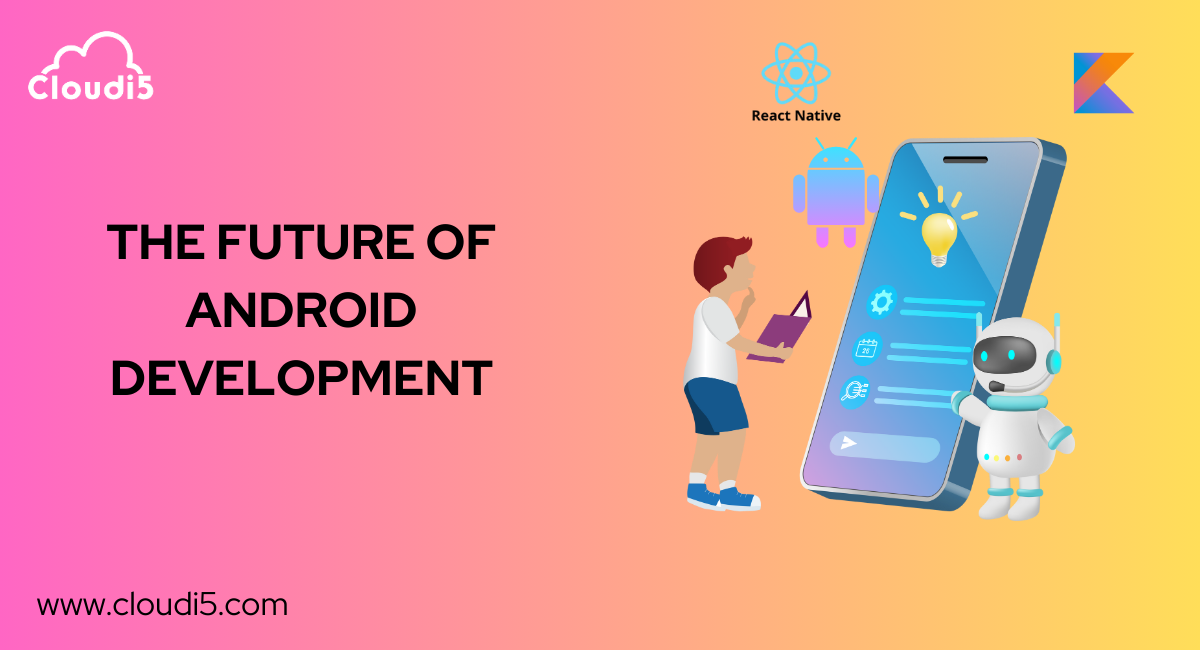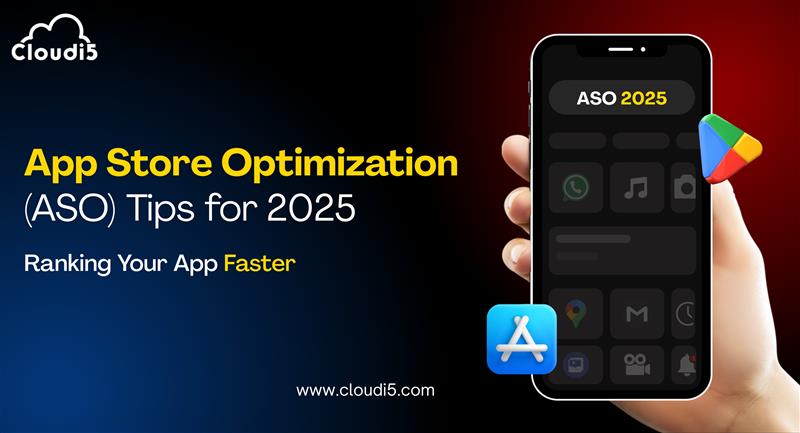
The Future Of Android Development: What's Next For Developers?
Android application development leads the way in innovation in the ever-changing world of technology. As we move through the present, it's becoming more apparent that revolutionary breakthroughs and paradigm-shifting changes are in store for Android development in the future. The path forward is characterized by incorporating state-of-the-art technologies that challenge the limits of what is possible on the Android platform. Android developers are leading the way in creating experiences that transcend mobile applications as the world's trends continue to influence the digital landscape. These trends include the introduction of 5G connectivity and the rapidly expanding field of augmented reality. The further development and integration of Google Assistant will significantly impact Android development in the future. Google Assistant is a significant force in voice-activated technologies and artificial intelligence (AI), and it will dramatically impact how Android application developers plan, create, and enhance their products.
We will explore "The Future of Android Development: What's Next for Developers?" and identify the major themes, cutting-edge innovations, and significant turning points shaping the field's future. Come along as we explore the exciting world of Kotlin, traverse the constantly changing security and privacy scene, analyze the intersection of cross-platform and native programming, and explore the frontiers of developer experience with DevOps techniques and continuous integration.
Emerging Technologies Shaping Android Development:
Artificial intelligence (AI) and machine learning (ML) are critical in Android apps, revolutionizing the mobile experience by imbuing them with intelligence and flexibility. AI algorithms are essential for improving user engagement by providing tailored experiences. Android apps with machine learning capabilities can provide customized information and recommendations based on user behaviour and preferences, strengthening the bond between the app and its users.
Users may now enjoy immersive and engaging experiences like never before because the Android ecosystem integrates augmented reality (AR) and virtual reality (VR). Because of Android's open platform, developers have had the opportunity to push the envelope of reality and symbiotically merge the digital and physical realms. Android apps with machine learning capabilities can provide customized information and recommendations based on user behaviour and preferences, strengthening the bond between the app and its users.
The arrival of 5G technology is a game-changer for mobile, with significant ramifications for high-performance, low-latency applications. A new era of mobile experiences is being ushered in by the fifth generation of wireless technology, which offers previously unheard-of speed and connectedness. 5G enables Android applications to provide content and services at previously thought impossible speeds thanks to much higher data transfer rates and decreased latency. Android developers face a dynamic environment as 5G infrastructure spreads globally, inspiring the development of high-performance applications, pushing the envelope of what is possible in the mobile space and opening up new avenues for the development of mobile technology.
Kotlin and Jetpack Compose: The New Standard?
The use of Kotlin in Android development has grown dramatically, and many developers now favour it over other programming languages due to its benefits. This programming language was introduced in 2011 and was later endorsed by Google in 2017. One of its main advantages is Kotlin's conciseness, which enables programmers to write more expressive and readable code with fewer lines. It is a sensible option for developers because of its compatibility with Java, which guarantees a seamless transfer for ongoing projects and a progressive migration to Kotlin. One of its main advantages is Kotlin's conciseness, which enables programmers to write more expressive and readable code with fewer lines. It is a sensible option for developers because of its compatibility with Java, which guarantees a seamless transfer for ongoing projects and a progressive transition to Kotlin.
Security and Privacy in the Android Landscape:
Security and Privacy are the critical points we must consider in the ever-changing Android Landscape. Safeguarding user data through mobile app security is essential, particularly in the digital age where Cybersecurity risks are shared.
Security Measures: Android uses multiple security layers to protect user data and device integrity. These include safe boot procedures, encrypted storage, and strong permission models. To further lessen the effect of such vulnerabilities, the Android Security Model includes tools like sandboxing to isolate app processes.
Biometric Authentication: Modern Android smartphones frequently incorporate biometric authentication techniques like fingerprint and face recognition to improve user authentication and access management. Adding a degree of security gives consumers a safe and easy way to access their devices and confidential apps.
Secure Transmission of Data: It is recommended that developers use secure communication protocols, such as HTTPS, to encrypt data that is sent between the device and servers. This guarantees the confidentiality and integrity of data while it is in transit and protects user information from interception.
App permission and user control:
Users can approve or reject particular permissions that applications request through Android's permission system. Giving consumers authority over which apps may access private information and device features encourages openness and gives users control over their Privacy.
Privacy Focused Design:
Android has added features like scoped storage to give users greater control over how apps access their files in response to growing privacy concerns. The Android ecosystem strongly emphasizes educating users about privacy settings and pushing developers to employ privacy-focused design concepts.
Data Encryption:
Android promotes encryption techniques to safeguard user data from unwanted access while in transit and at rest. Full-disk encryption ensures that information on the device is safe, even if the device is misplaced.
Security updates and Patching:
To fix vulnerabilities and guarantee that Android devices are continuously protected, timely security updates and patches are essential. Regular updates are provided by manufacturers and developers working together, and apps are screened for possible security risks by Google's Play Protect service before installation.
Cross-Platform Development- Flutter, Reactive Native and Beyond:
The rise in popularity of cross-platform frameworks is significantly changing the dynamics of traditional Android development. The flexibility of cross-platform frameworks to ease the app development process across various platforms, as demonstrated by tools like Flutter and React Native, is why developers are favouring them more and more. This approach offers the benefit of building apps with a shared codebase for both iOS and Android, which is a game-changer for conventional methods of Android development.
When constructing cross-platform apps, comparing Flutter and React Native is essential for developers to choose the best framework for their needs. Facebook-maintained React Native and Google-developed Flutter are robust frameworks that make it easier to create excellent mobile applications from a single codebase. With its reactive framework and Dart programming language, Flutter sets itself apart and offers an extensive collection of customizable widgets for creating aesthetically pleasing interfaces. Conversely, React Native is more recognizable to web developers as it uses JavaScript and a bridge to interact with native components.
Before choosing between these two, it is essential to consider several assets. First and foremost, the project's nature is crucial; intricate, graphically demanding programs could profit more from the performance improvements possible with native programming. Second, cost-effectiveness and development speed are critical factors to take into account. Cross-platform development frequently offers advantages in terms of faster deployment and lower costs. To ensure that the chosen strategy is in line with present and future development demands, striking the proper balance requires careful evaluation of project requirements, user expectations, and the changing landscape of cross-platform tools.
The Developer Experience (DevOps and CI/CD):
Using Continuous Integration and Continuous Deployment (CI/CD) solutions to streamline development workflows has become essential to contemporary software development methods. Code integration, test execution, and application deployment are automated by CI/CD solutions, promoting a more productive and team-oriented development environment. With the help of continuous integration, teams can identify and fix integration problems early in the development cycle by ensuring that code updates from several contributors are automatically integrated into a shared repository. Delivering software upgrades to production environments quickly and reliably is made possible by Continuous Deployment, which automates the release process.
DevOps is revolutionary in enhancing the cooperation between development and operations teams by promoting a shared accountability, efficiency, and communication culture. By combining the terms "development" and "operations," "DevOps" encourages an integrated, cooperative strategy that dismantles these divisions. It presents methodologies prioritizing automation, continuous integration, and continuous delivery, bringing both teams' aims closer to the same target, producing dependable software.
Conclusion:
In summary, "The Future of Android Development: What's Next for Developers?" paints a vivid and changing picture of the industry that will fundamentally alter how developers conceptualize, create, and execute Android applications. It is evident that Android developers are beginning a new era as we dive into cutting-edge technologies like artificial intelligence and machine learning, observe the growth of programming languages like Kotlin, and investigate the game-changing possibilities of cross-platform development. One thing is clear as we set out on this voyage into the future of Android development: there are plenty of opportunities, and developers who stay adaptable, interested, and dedicated to quality will surely be crucial in determining the course of Android's next evolution.
Trusted By












Leave Comments